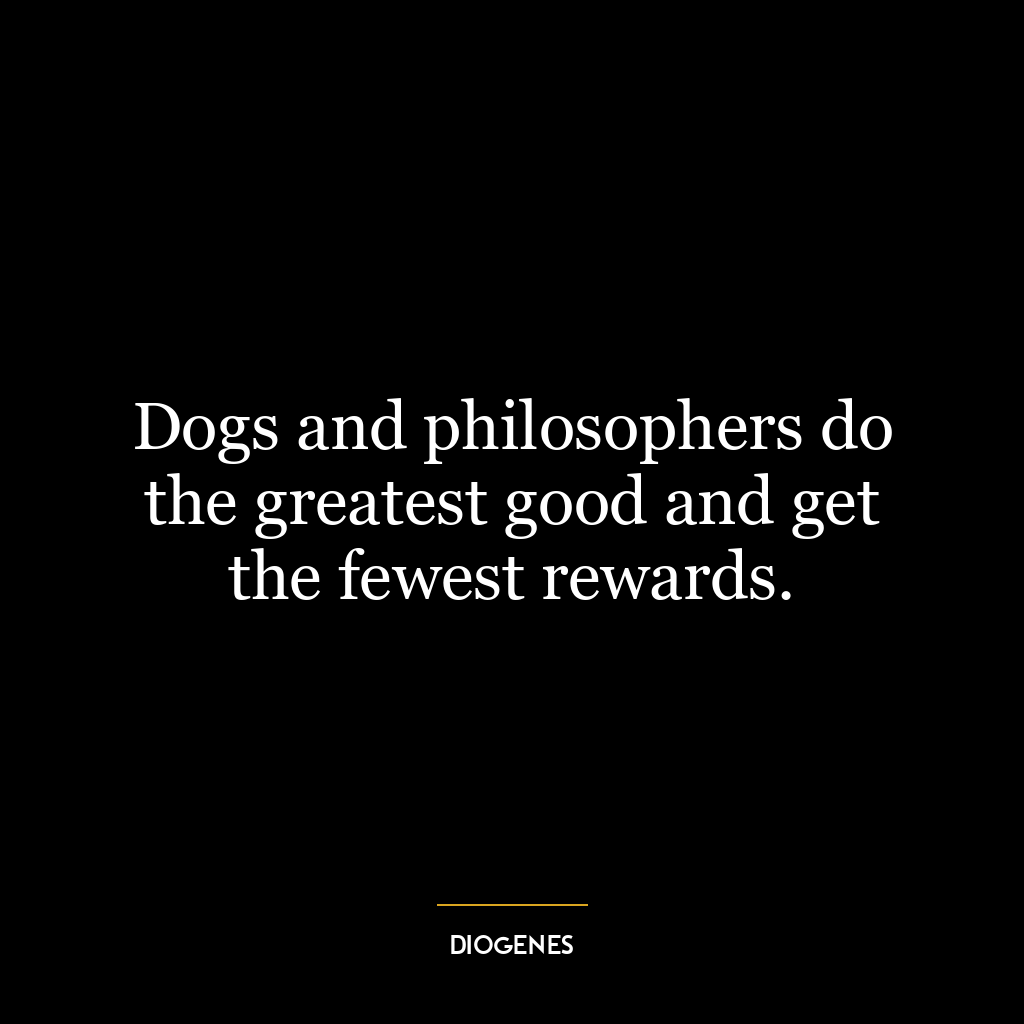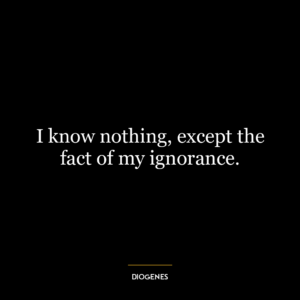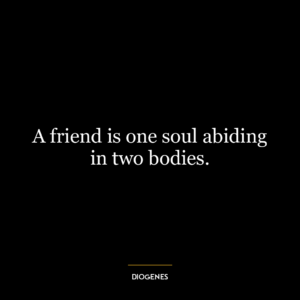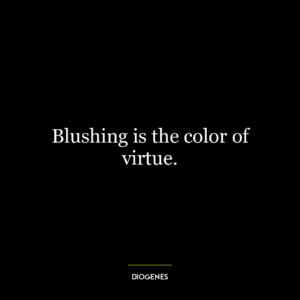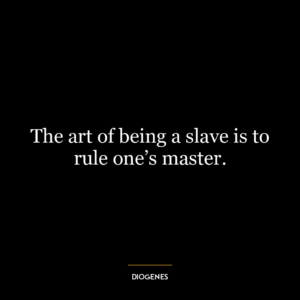“Dogs and philosophers do the greatest good and get the fewest rewards” is a quote that essentially captures the essence of selfless service and the pursuit of truth. Dogs, known for their loyalty and unconditional love, often serve their human companions without expecting anything in return. Similarly, philosophers, in their quest for wisdom and truth, contribute significantly to society by challenging prevailing norms, asking tough questions, and pushing the boundaries of human understanding. Yet, they often receive little recognition or material rewards for their efforts.
The quote suggests that the value of one’s actions should not be measured in terms of material rewards or recognition, but by the impact they make. In other words, it’s a call to focus on intrinsic motivations—doing good because it’s right, not because of what one might gain from it.
In today’s world, this quote can be applied in various ways. For instance, in the realm of social work or activism, individuals often work tirelessly for the betterment of society, yet their efforts may not be adequately recognized or compensated. Yet, they continue their work, driven by a deep sense of purpose and commitment to social justice.
In terms of personal development, this quote encourages us to prioritize purpose and impact over recognition or reward. It invites us to question our motivations and to strive for a life of service and wisdom, even if it doesn’t bring us fame or fortune. It’s about living authentically and valuing the inherent worth of our actions, rather than their external validation.
Furthermore, it implies that the pursuit of wisdom or the act of doing good is its own reward. The satisfaction derived from these pursuits is often more fulfilling and long-lasting than any external reward. This perspective can lead to a more fulfilling life, as it shifts the focus from external validation to internal satisfaction and growth.

